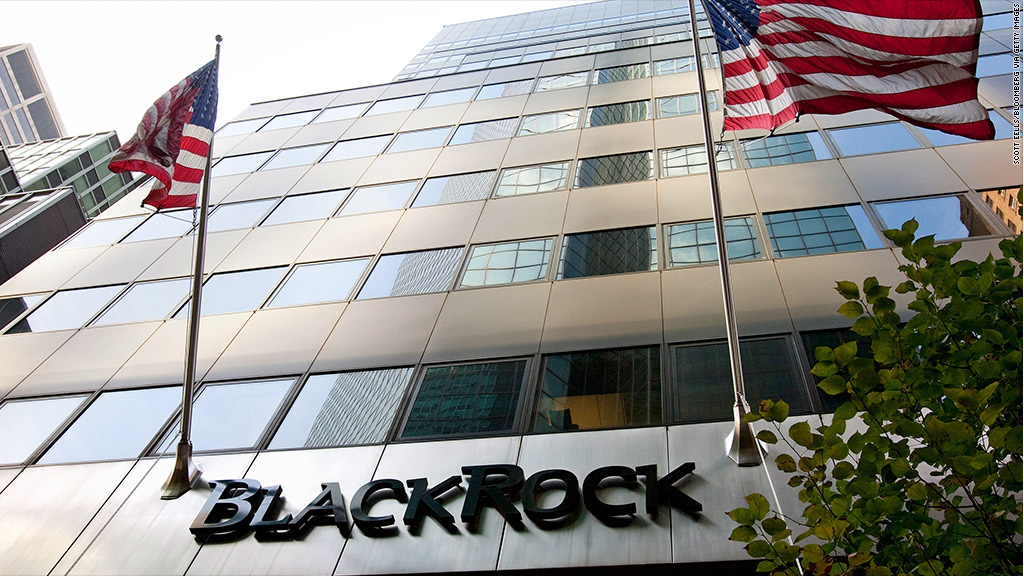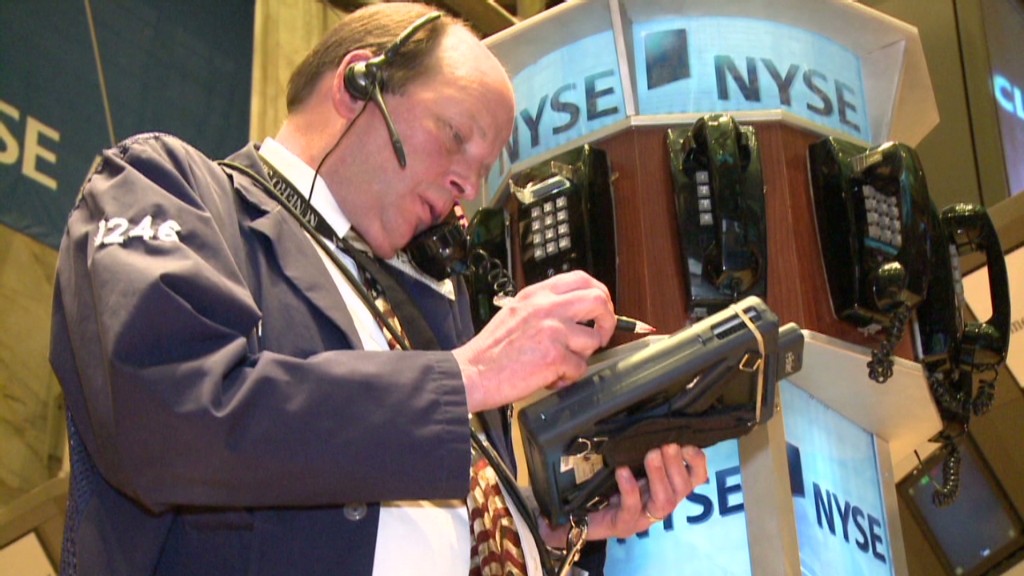
Competition among ETF providers has intensified, forcing many to slash prices as they race to snatch up the growing number of investors who are trading in their mutual funds.
Beginning Wednesday, BlackRock is charging just 0.07%, or 70 cents for every $1,000 invested, to own its iShares Core S&P Total U.S. Stock Market ETF (ISI). That's down 65% from what it previously charged. It also decreased the cost of owning the iShares Core S&P 500 ETF (IVV) by about 20% to 0.07%.
BlackRock's bold price reductions come as the world's largest ETF provider vies to keep up with its rivals.
Last month, Charles Schwab undercut Vanguard as the long-standing leader of low-cost ETFs by slashing its fees between 15% and 60% on 15 ETFs. Schwab is now charging just 0.04% for the Schwab U.S. Broad Market ETF (SCHB), compared with the Vanguard S&P 500 ETF (VOO), which currently charges 0.05%.
But Vanguard, the third-largest ETF provider, fired back quickly. Earlier this month, the firm said it was switching the underlying index for 22 ETFs, starting in January. That move will enable Vanguard to deliver even lower expense ratios to its ETF shareholders over time.
Related: Individual investors have insatiable appetite for ETFs
"This is clearly a positive trend for investors," said David Kotok, chief investment officer at Cumberland Advisors, which exclusively uses ETFs in its stock portfolios. "We always look at expense ratios when distinguishing between ETFs, and this price compression has been a long time coming."
While the fee cuts seem fractional, the pennies do add up over time.
And this is just the start, said Christian Magoon, CEO of Magoon Capital and an ETF industry consultant.
"These decisions tend to have a ripple effect across the marketplace," he said. While the recent price war has made what were already the least expensive ETFs even cheaper, Magoon expects that the next wave will bring down costs for niche and more expensive ETFs.
Further down the line, Magoon said there could even be some ETFs with a 0% expense ratio. Rather than charging a fee to simply own the ETF, issuers could lure in investors with no-cost products and earn revenue by providing other services, he said.
Related: ETFs: Why so complicated?
Vanguard has gained a lot of traction by offering low-cost ETFs, as well as commission-free trading on its online platform. The firm's market share has climbed to a healthy 20% from 11% in 2009, while iShares' has fallen to 40% from almost 50% just three years ago.
"There's definitely some tension in the industry," said Todd Rosenbluth, ETF analyst with S&P Capital IQ. "The ETF pie keeps growing, and the providers are doing what they can to increase their share."

But experts also stress that fees like the expense ratio are only part of the equation when calculating the total cost of owning an ETF.
Since ETFs trade on exchanges, just like individual stocks, there's also the so-called bid-to-ask spread, or the difference between what buyers are willing to pay and what sellers are offering. The higher the spread, the more costly for investors.
For example, the spread on the $1.2 billion Schwab U.S. Broad Market ETF amounts to about 30 cents for every $1,000 invested, versus 10 cents for every $1,000 invested for the $23 billion Vanguard Total Stock Market ETF (VTI), according to Morningstar data.
So even though the Schwab ETF boasts the lowest expense ratio in the entire ETF industry, its high bid-to-ask spread makes it more expensive than Vanguard's similar ETF, according to data analysis from Vanguard.
"Investors really need to focus on the overall ownership cost of and ETF," said Magoon. "But expense ratios are part of that overall cost, so this race to the bottom is a big plus."


